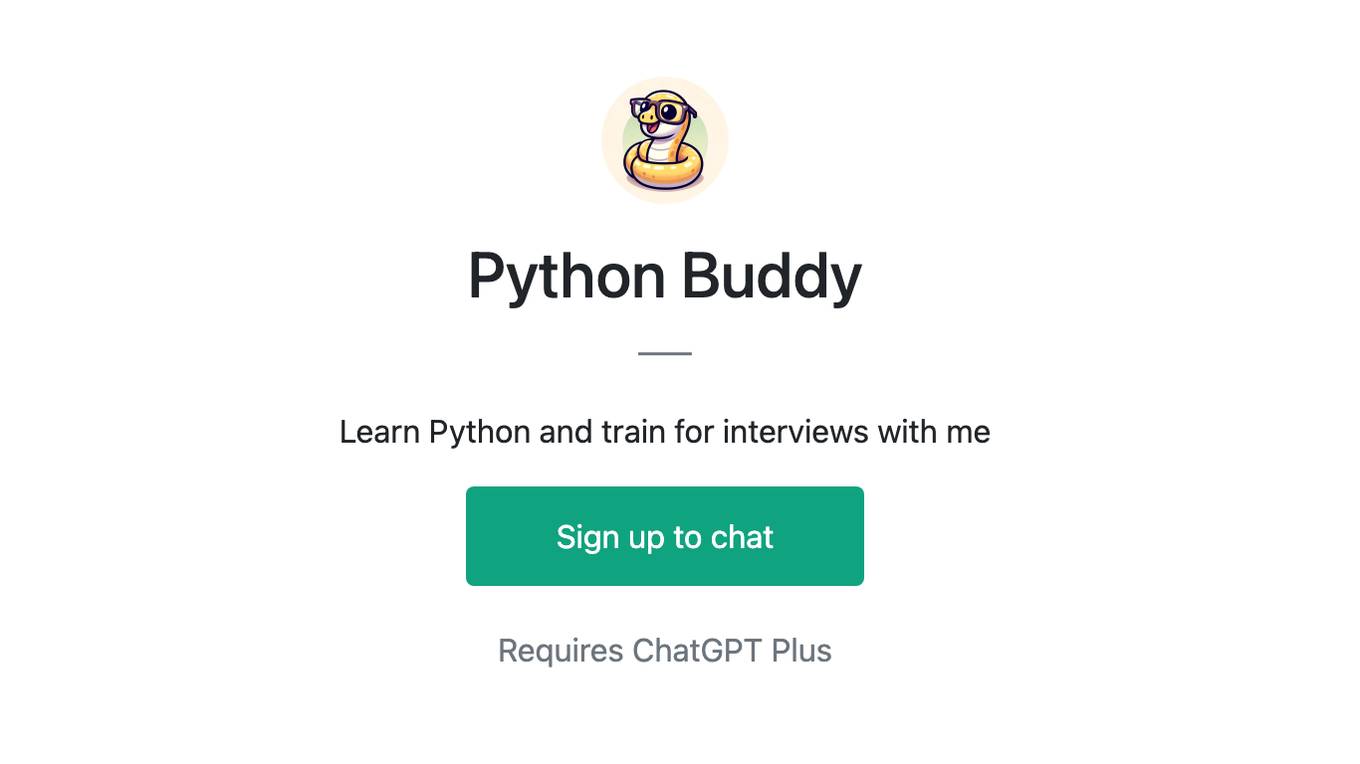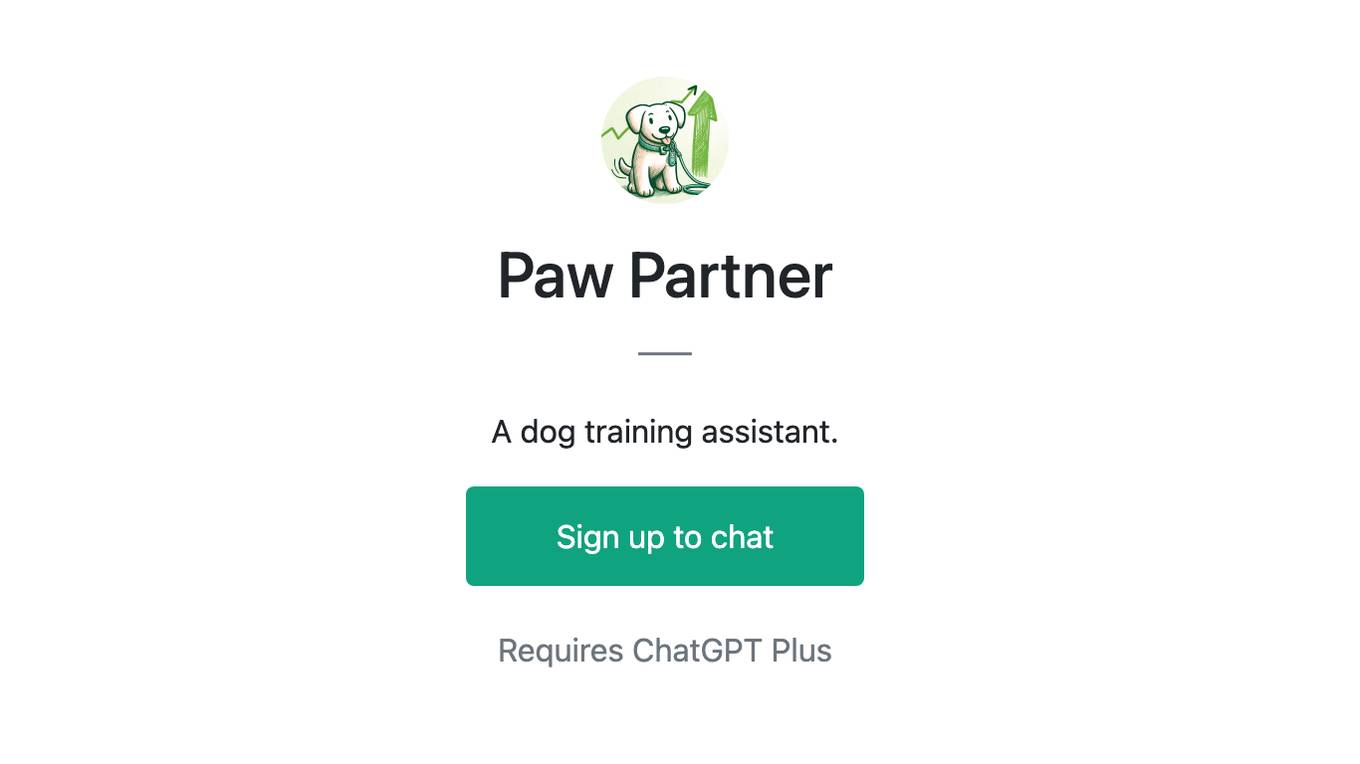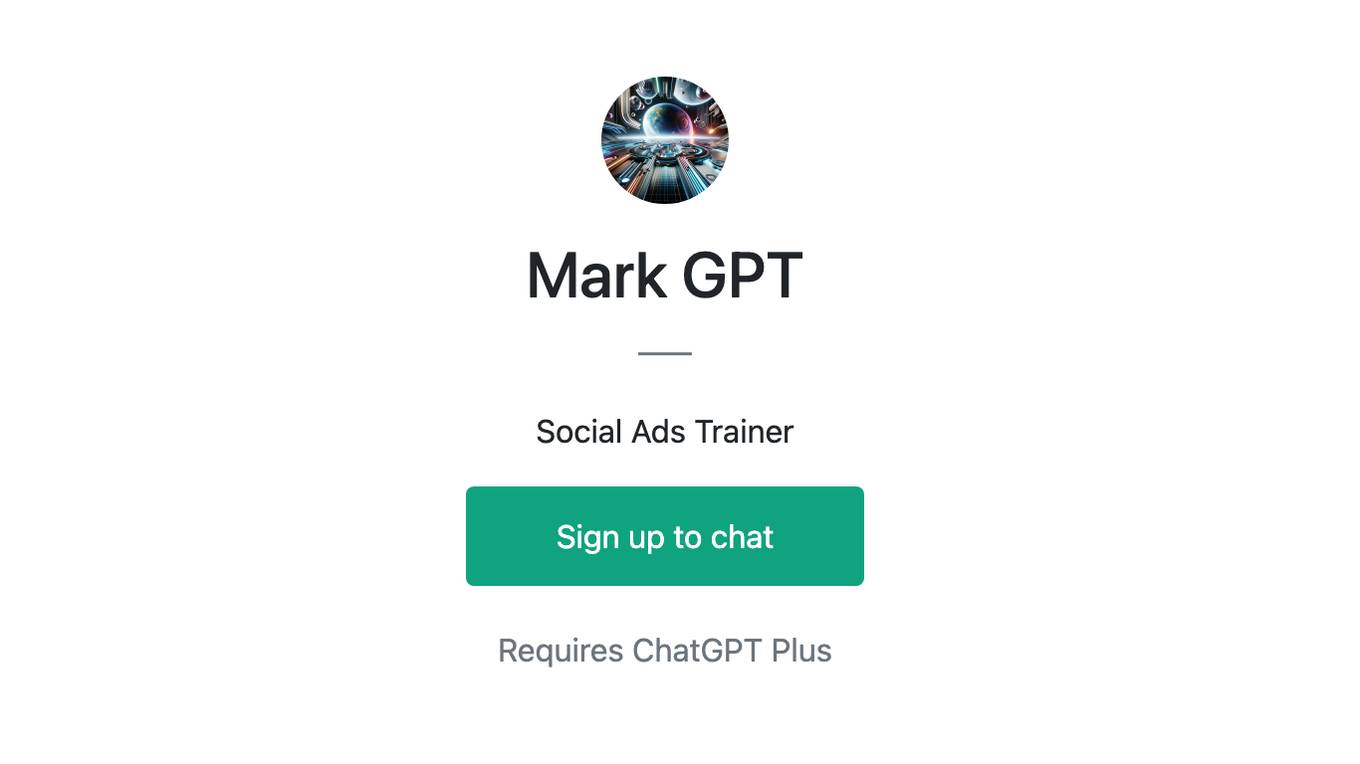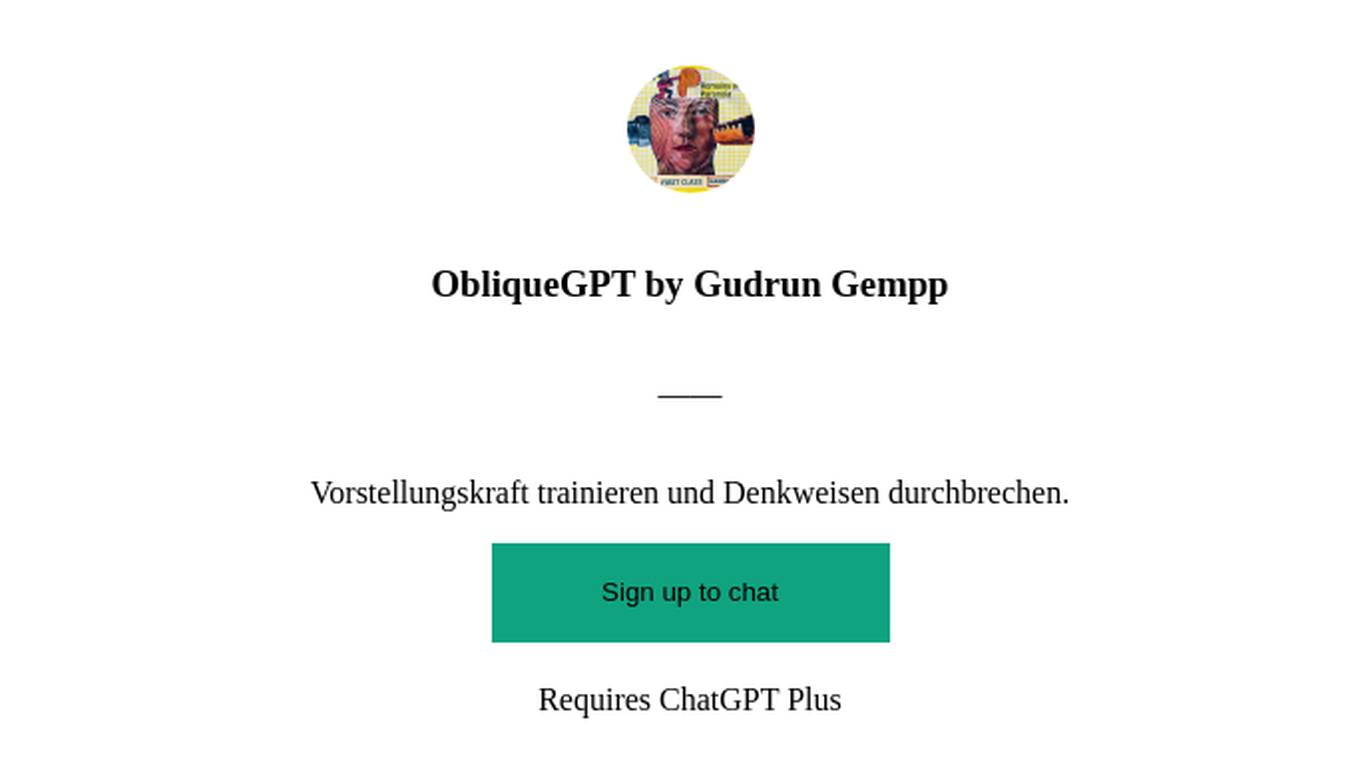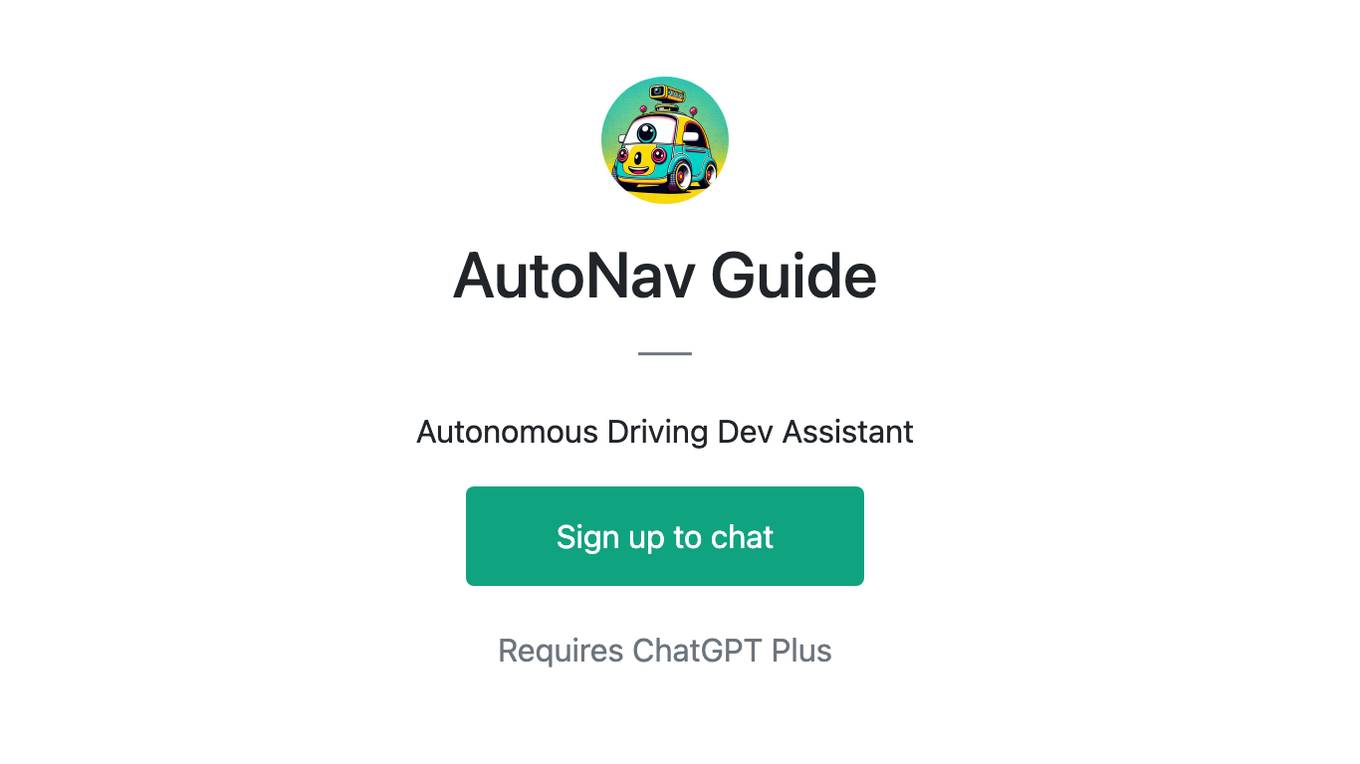Best AI tools for< Train Robust Models >
20 - AI tool Sites

Denvr DataWorks AI Cloud
Denvr DataWorks AI Cloud is a cloud-based AI platform that provides end-to-end AI solutions for businesses. It offers a range of features including high-performance GPUs, scalable infrastructure, ultra-efficient workflows, and cost efficiency. Denvr DataWorks is an NVIDIA Elite Partner for Compute, and its platform is used by leading AI companies to develop and deploy innovative AI solutions.
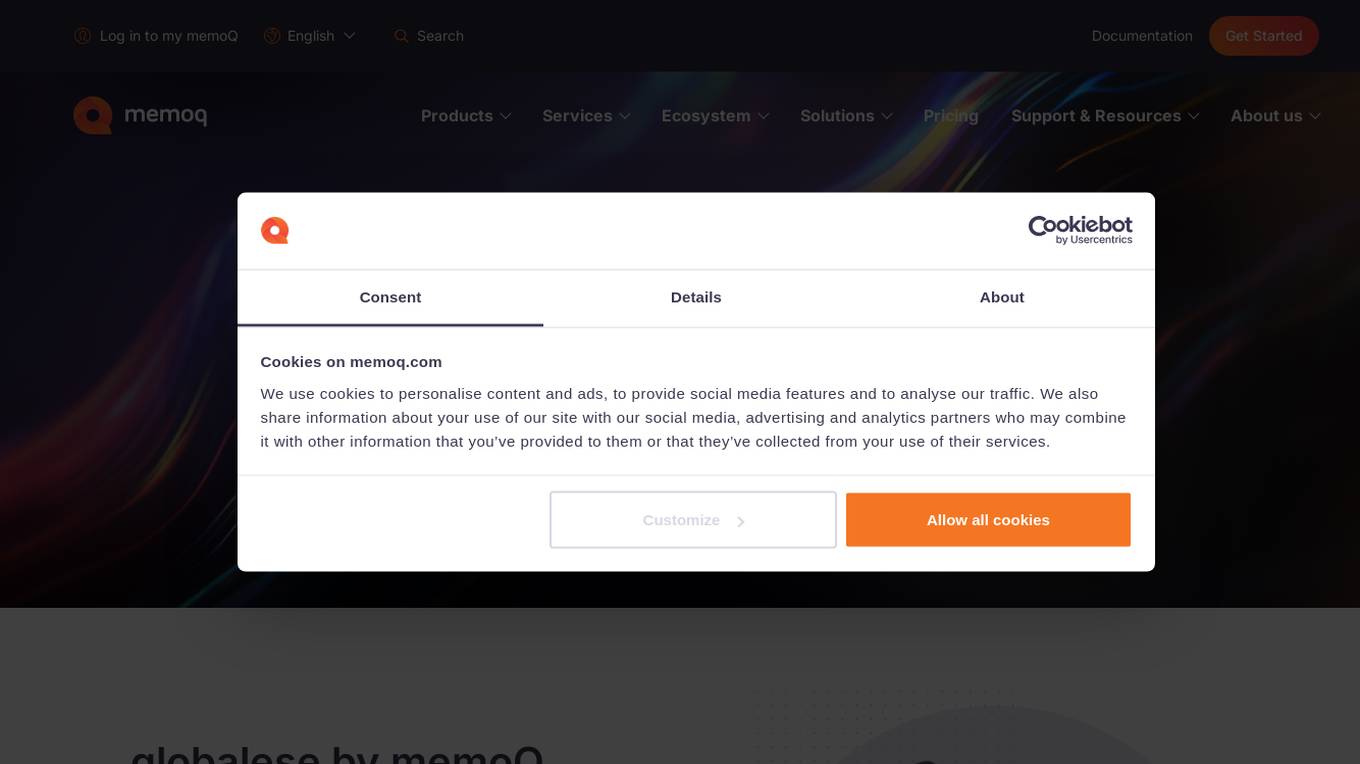
Globalese by memoQ
Globalese by memoQ is a robust platform for training AI-powered custom machine translation models. It empowers enterprises and language service providers to easily create high-quality translation engines using their own data, tailored to their specific needs. The user-friendly platform integrates with popular translation management systems and offers an API for seamless workflow integration. With features like custom prompts, advanced tag handling, translation tool integration, supported languages for over 130 language combinations, granular permissions, and flexible deployment options, Globalese by memoQ streamlines the translation process with AI-powered custom models.
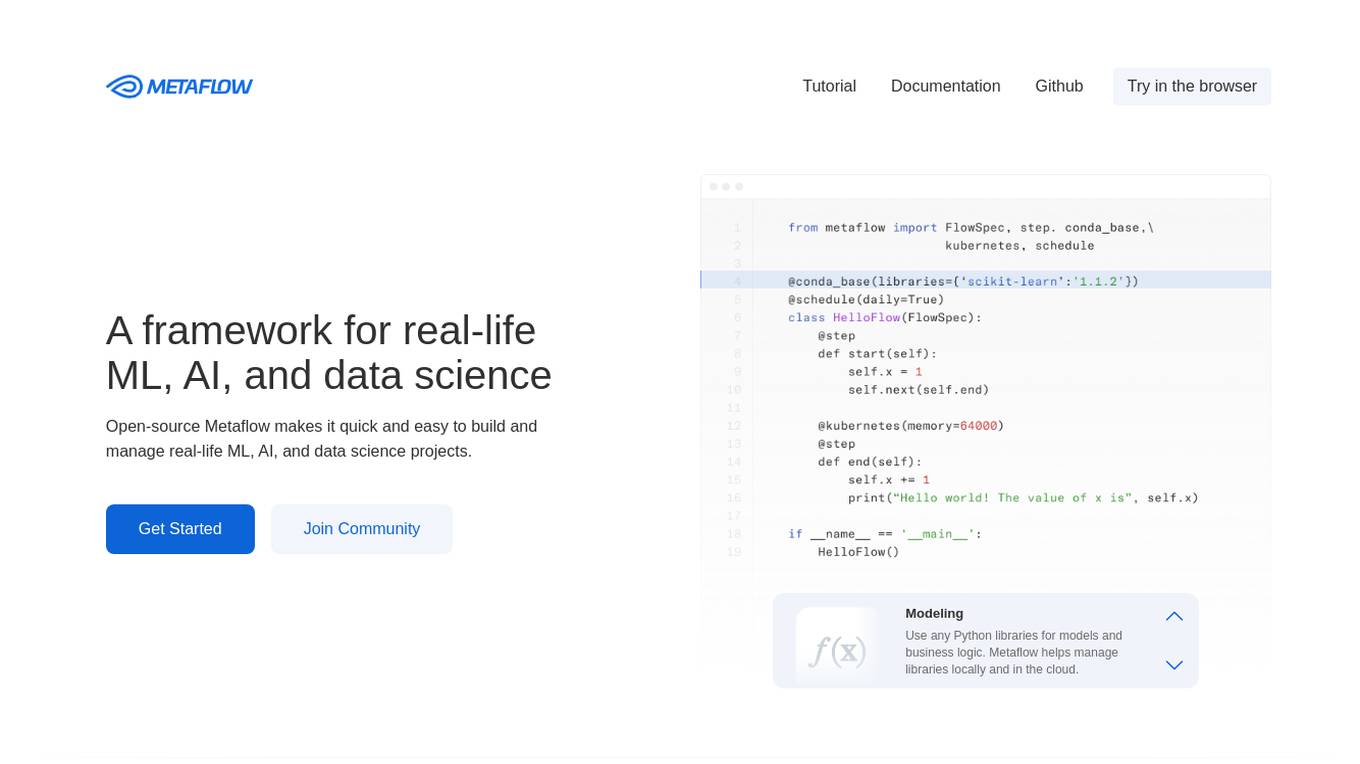
Metaflow
Metaflow is an open-source framework for building and managing real-life ML, AI, and data science projects. It makes it easy to use any Python libraries for models and business logic, deploy workflows to production with a single command, track and store variables inside the flow automatically for easy experiment tracking and debugging, and create robust workflows in plain Python. Metaflow is used by hundreds of companies, including Netflix, 23andMe, and Realtor.com.
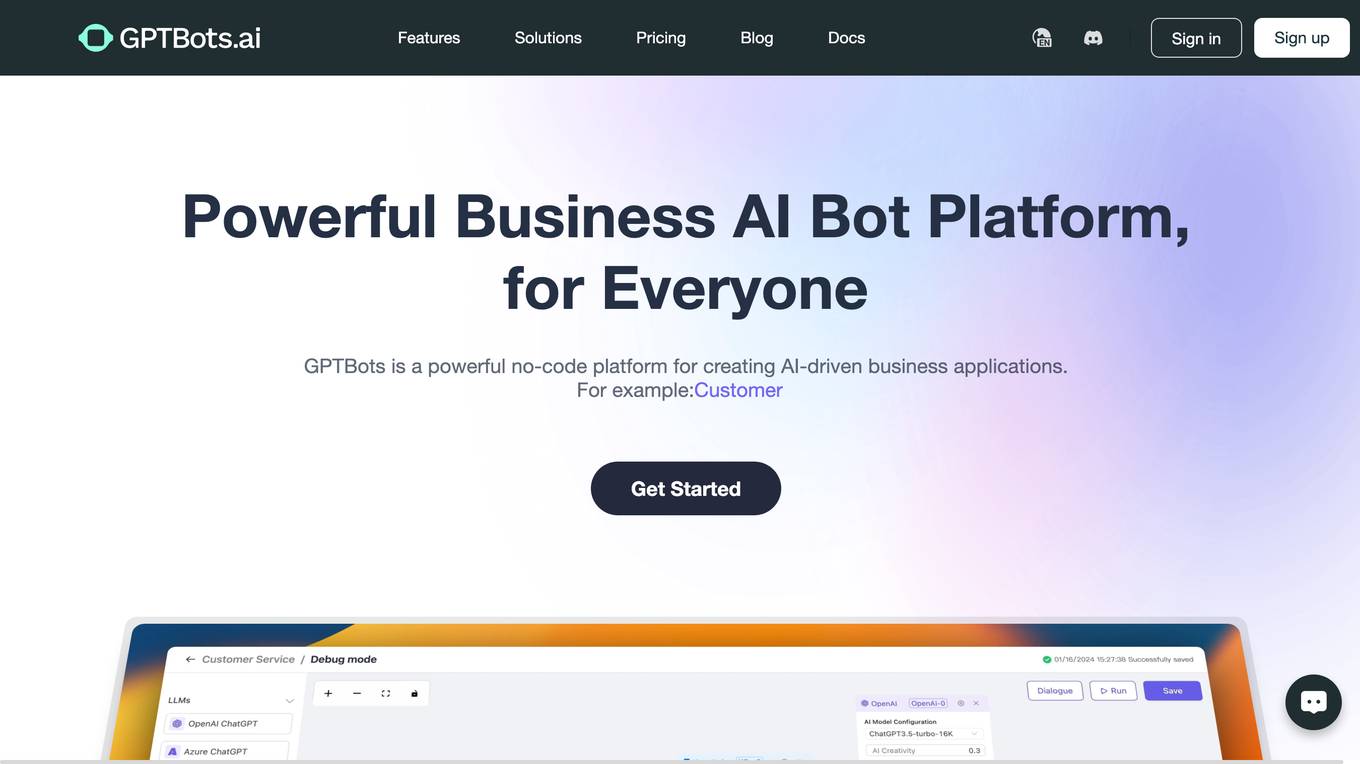
GPTBots
GPTBots.ai is a powerful no-code platform for creating AI-driven business applications. It seamlessly integrates large language models with organizational data, services, and workflows to empower AI bots in driving business growth. The platform allows users to build and train AI bots without coding experience, access best-practice AI bot templates, optimize and customize AI knowledge base, and adapt to various scenarios with intelligent agent bots. GPTBots supports diverse input types, offers versatile language models, enables seamless chatbot-human handoff, and provides robust API and SDK for embedding capabilities into products. Trusted by over 100k companies worldwide, GPTBots helps enterprises enhance customer service, leads generation, SEO writing, data analysis, and more.
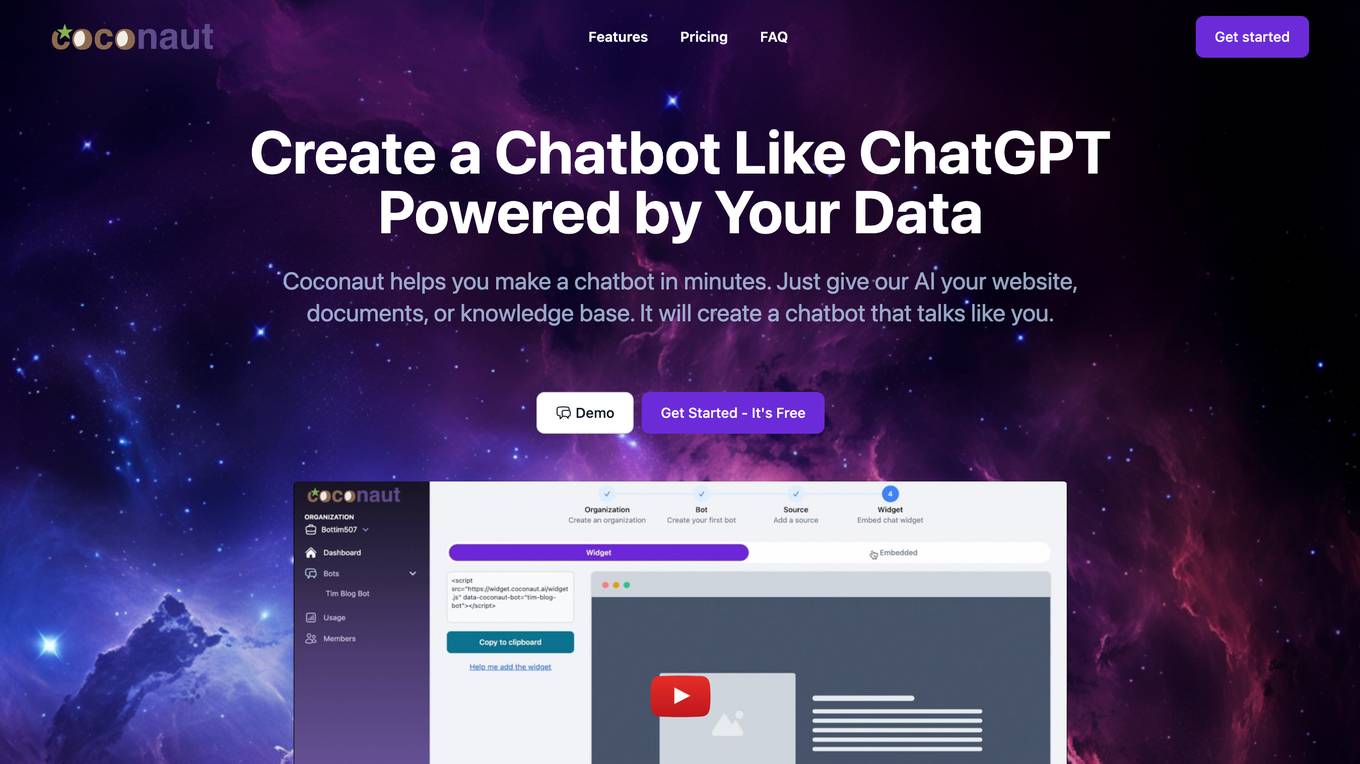
Coconaut
Coconaut is an AI-powered platform that enables users to create chatbots quickly and easily by leveraging their website content, documents, or knowledge base. The platform utilizes advanced AI models like ChatGPT-3.5-Turbo and ChatGPT-4 to generate chatbots that mimic the user's communication style. Coconaut is designed to streamline customer engagement optimization for businesses by offering a user-friendly interface and robust security features.
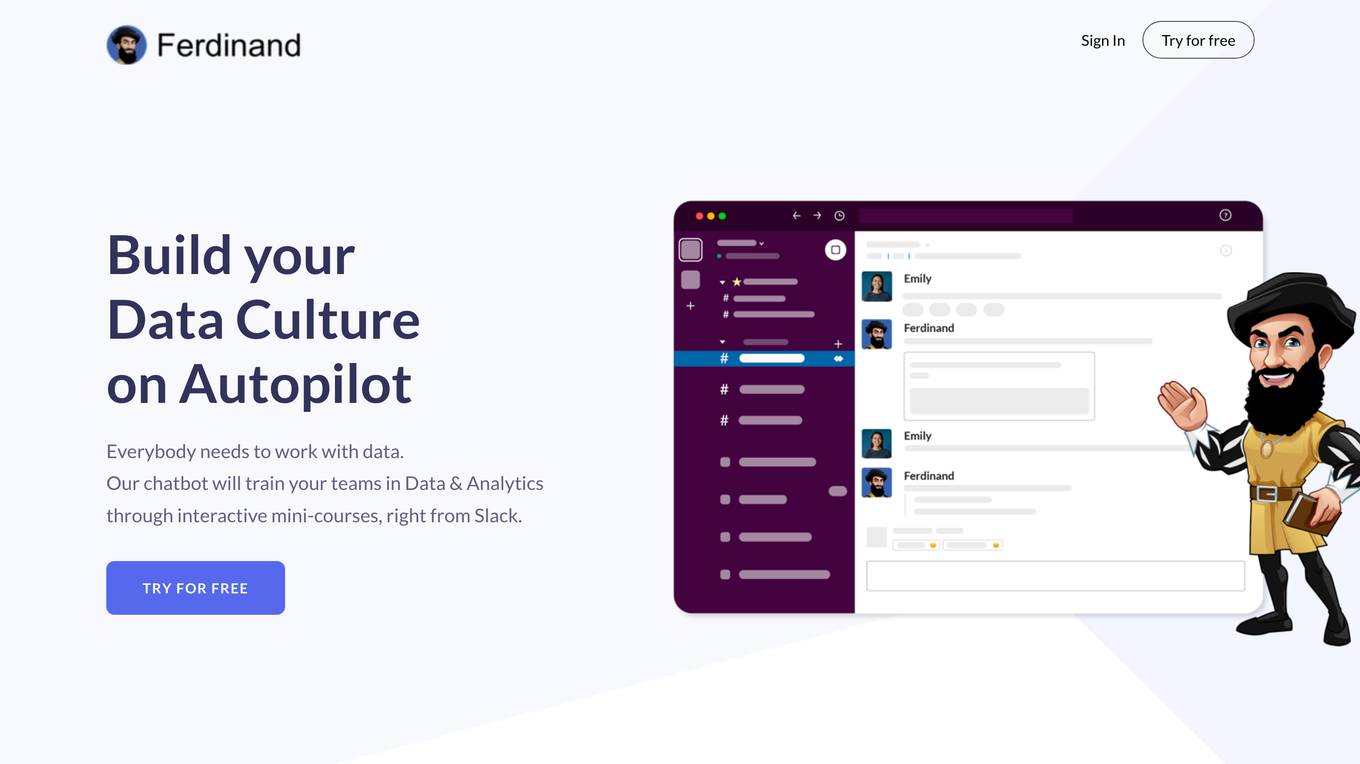
Ferdinand
Ferdinand is a platform designed to help users build their data culture and skills effortlessly. It offers interactive mini-courses in Data & Analytics through a chatbot integrated with Slack. Users can learn at their own pace and track progress easily. Ferdinand provides tools and resources to enhance business growth, simplifies learning barriers, and offers a robust payments platform. With features like interactive mini-courses, simplified card issuing, streamlined checkout, smart dashboard, optimized platforms, and faster transaction approval, Ferdinand aims to empower users in navigating the world of data successfully.
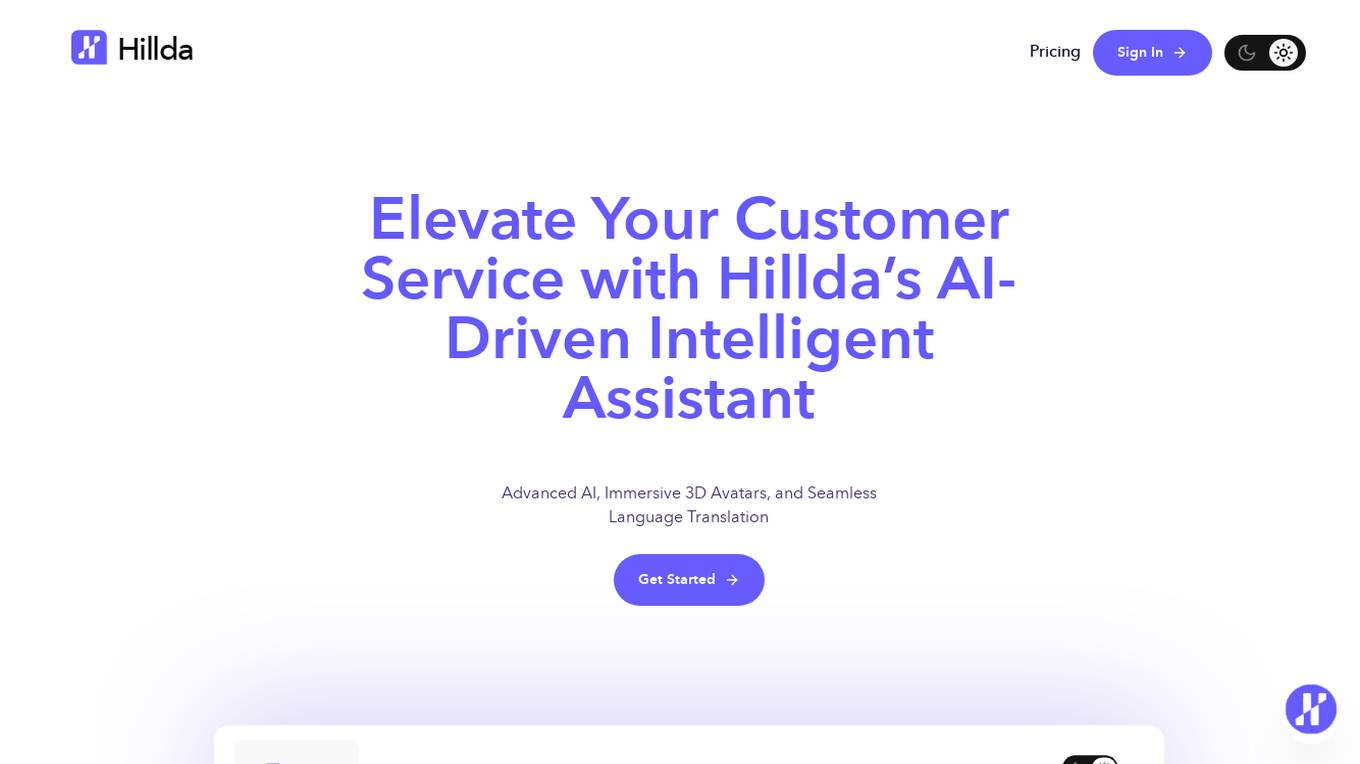
Hillda
Hillda is an AI-driven intelligent assistant that elevates customer service through advanced AI technology, immersive 3D avatars, and seamless language translation. It allows users to train their AI by adding data sources, customize their chatbot's appearance, and create a unique avatar reflecting their brand's voice. Hillda leverages AI and immersive technology for superior customer support, sophisticated data mining, dynamic knowledge base management, advanced language translation, and immersive 3D avatars to enhance customer interactions. It ensures robust security and data integrity through encryption and secure data management protocols.

Bemi
Bemi is an Automatic Audit Trail tool designed for PostgreSQL databases. It allows users to track data changes reliably without the need for complex engineering or costly infrastructure. Bemi offers seamless setup, contextualized data tracking, secure data storage, and trusted integrations with hosting partners. It is a robust and reliable solution for audit & compliance, observability & troubleshooting, data recovery, and building activity feeds. Bemi is trusted by top tech companies for its efficiency and ease of use.

IBM Watsonx
IBM Watsonx is an enterprise studio for AI builders. It provides a platform to train, validate, tune, and deploy AI models quickly and efficiently. With Watsonx, users can access a library of pre-trained AI models, build their own models, and deploy them to the cloud or on-premises. Watsonx also offers a range of tools and services to help users manage and monitor their AI models.

Outlier AI
Outlier AI is a platform that connects subject matter experts to help build the world's most advanced Generative AI. It allows experts to work on various projects from generating training data to evaluating model performance. The platform offers flexibility, allowing contributors to work from home on their own schedule. Outlier AI aims to redefine how AI learns by leveraging the expertise of domain specialists across different fields.
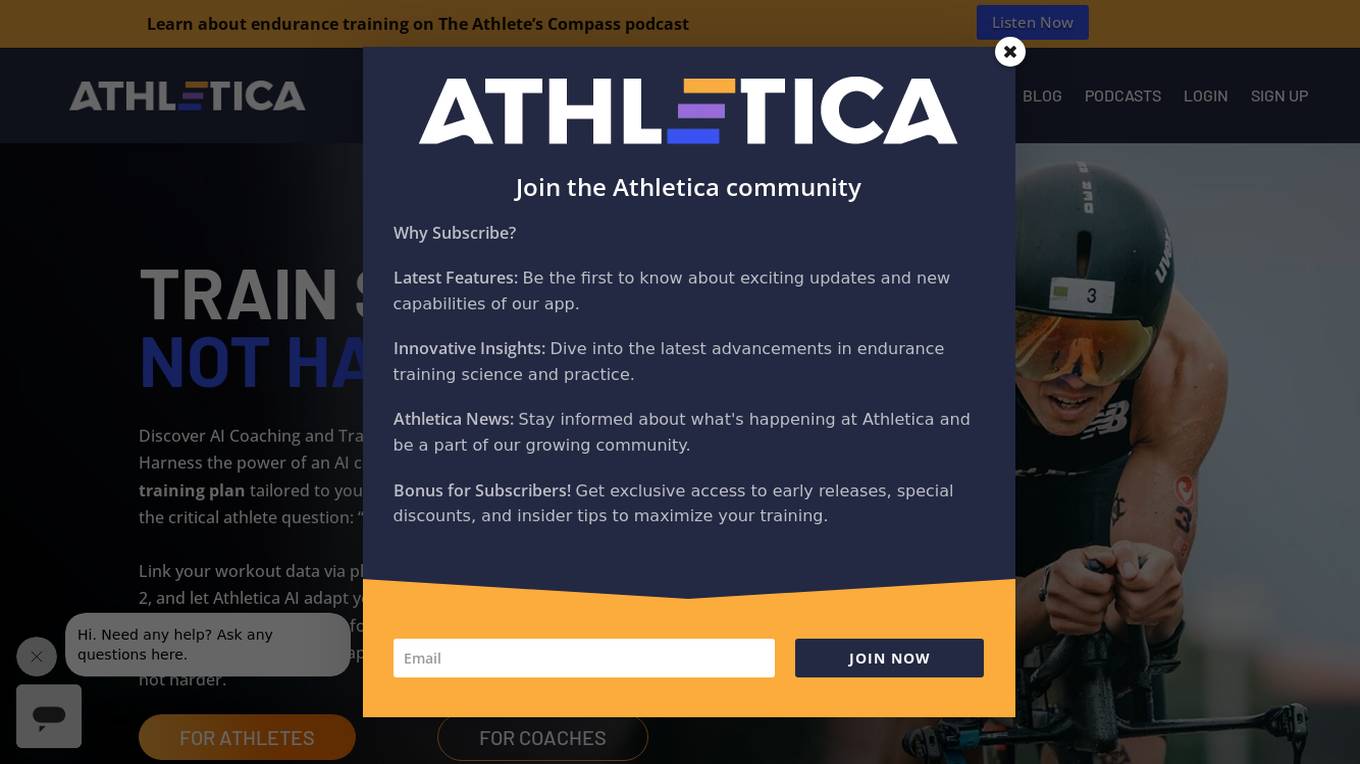
Athletica AI
Athletica AI is an AI-powered athletic training and personalized fitness application that offers tailored coaching and training plans for various sports like cycling, running, duathlon, triathlon, and rowing. It adapts to individual fitness levels, abilities, and availability, providing daily step-by-step training plans and comprehensive session analyses. Athletica AI integrates seamlessly with workout data from platforms like Garmin, Strava, and Concept 2 to craft personalized training plans and workouts. The application aims to help athletes train smarter, not harder, by leveraging the power of AI to optimize performance and achieve fitness goals.

Backend.AI
Backend.AI is an enterprise-scale cluster backend for AI frameworks that offers scalability, GPU virtualization, HPC optimization, and DGX-Ready software products. It provides a fast and efficient way to build, train, and serve AI models of any type and size, with flexible infrastructure options. Backend.AI aims to optimize backend resources, reduce costs, and simplify deployment for AI developers and researchers. The platform integrates seamlessly with existing tools and offers fractional GPU usage and pay-as-you-play model to maximize resource utilization.
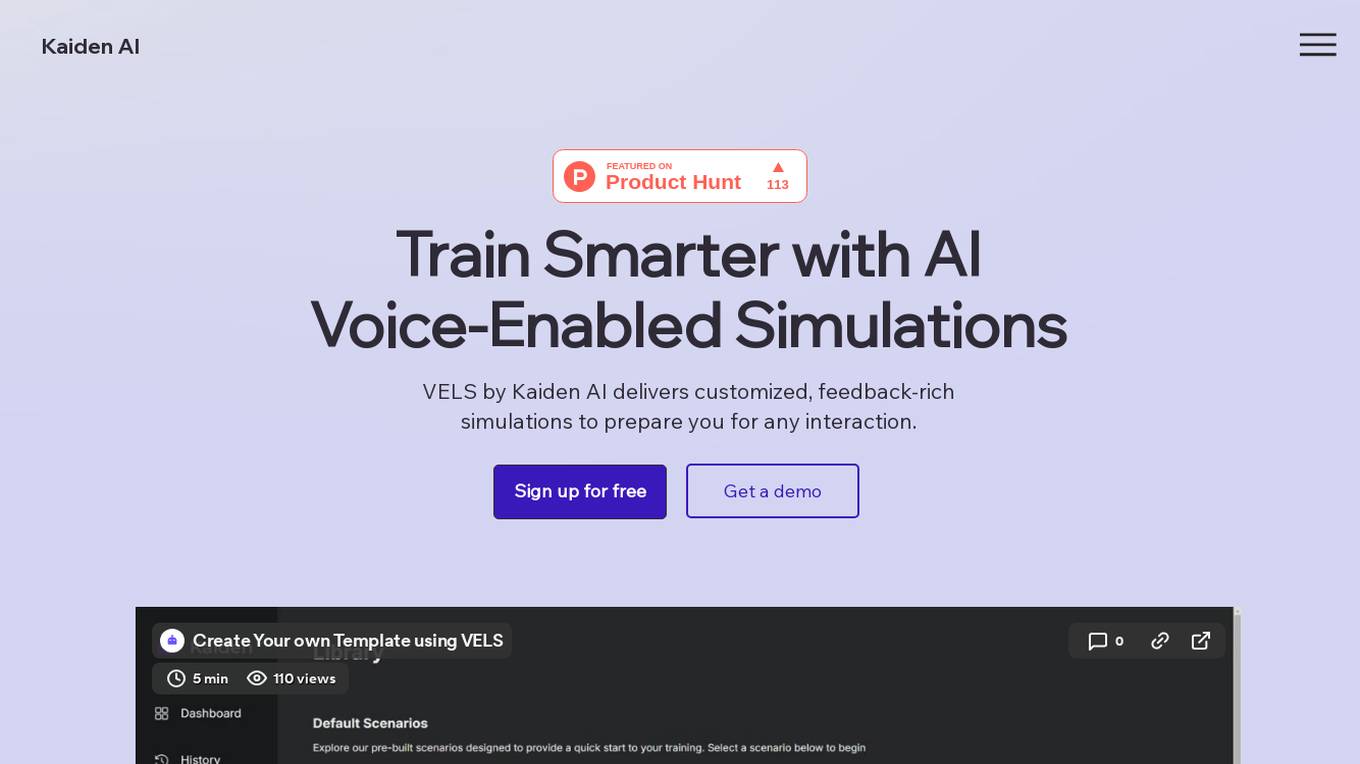
Kaiden AI
Kaiden AI is an AI-powered training platform that offers personalized, immersive simulations to enhance skills and performance across various industries and roles. It provides feedback-rich scenarios, voice-enabled interactions, and detailed performance insights. Users can create custom training scenarios, engage with AI personas, and receive real-time feedback to improve communication skills. Kaiden AI aims to revolutionize training solutions by combining AI technology with real-world practice.

Endurance
Endurance is a platform designed for runners, swimmers, and cyclists to engage in group training activities with friends or local communities. Users can create or join teams, share structured workouts, and benefit from collective motivation and accountability. The platform aims to make training fun and effective by leveraging the power of group workouts and social connections.
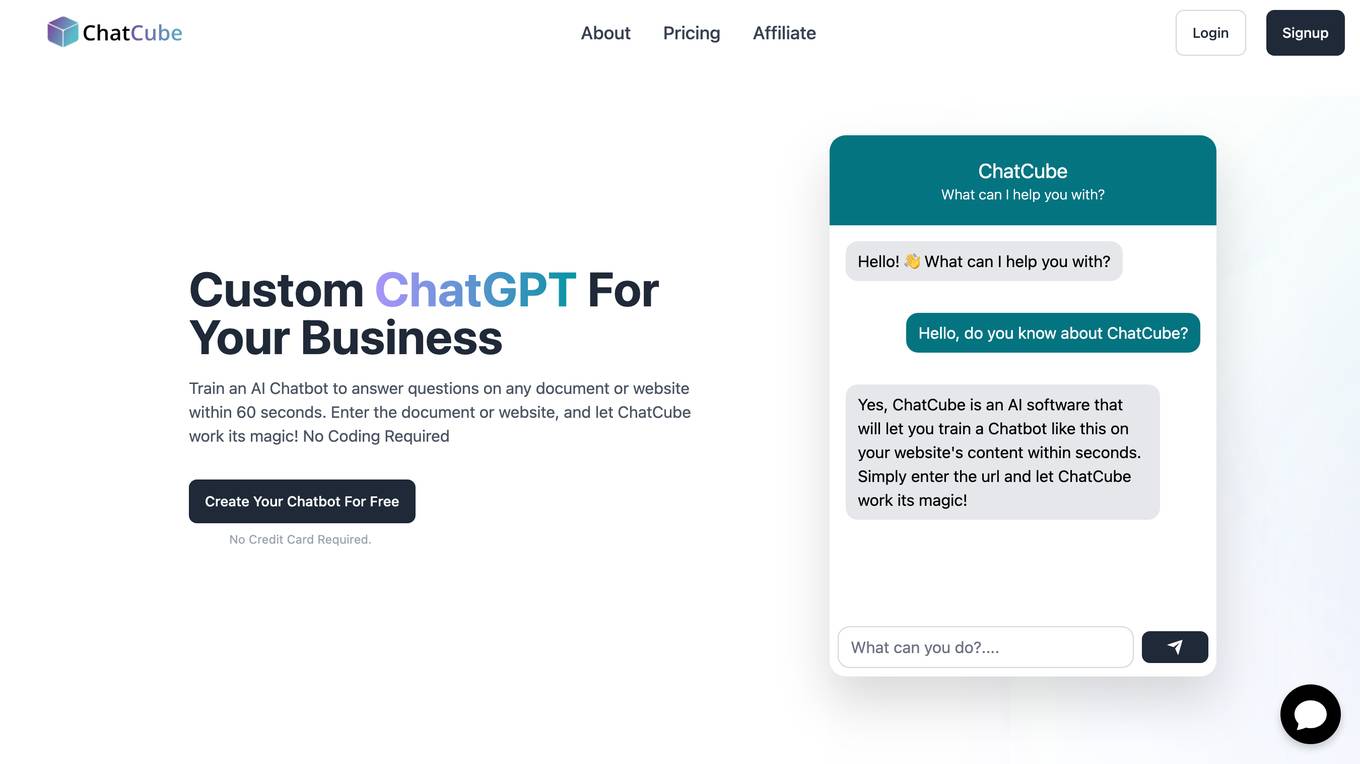
ChatCube
ChatCube is an AI-powered chatbot maker that allows users to create chatbots for their websites without coding. It uses advanced AI technology to train chatbots on any document or website within 60 seconds. ChatCube offers a range of features, including a user-friendly visual editor, lightning-fast integration, fine-tuning on specific data sources, data encryption and security, and customizable chatbots. By leveraging the power of AI, ChatCube helps businesses improve customer support efficiency and reduce support ticket reductions by up to 28%.

Workout Tools
Workout Tools is an AI-powered personal trainer that helps you train smarter and reach your fitness goals faster. It takes into account different parameters, such as your physics, the type of workout you're interested in, your available equipment, and comes up with a suggested workout. Don't like the workout? Just generate another one. It's that simple.
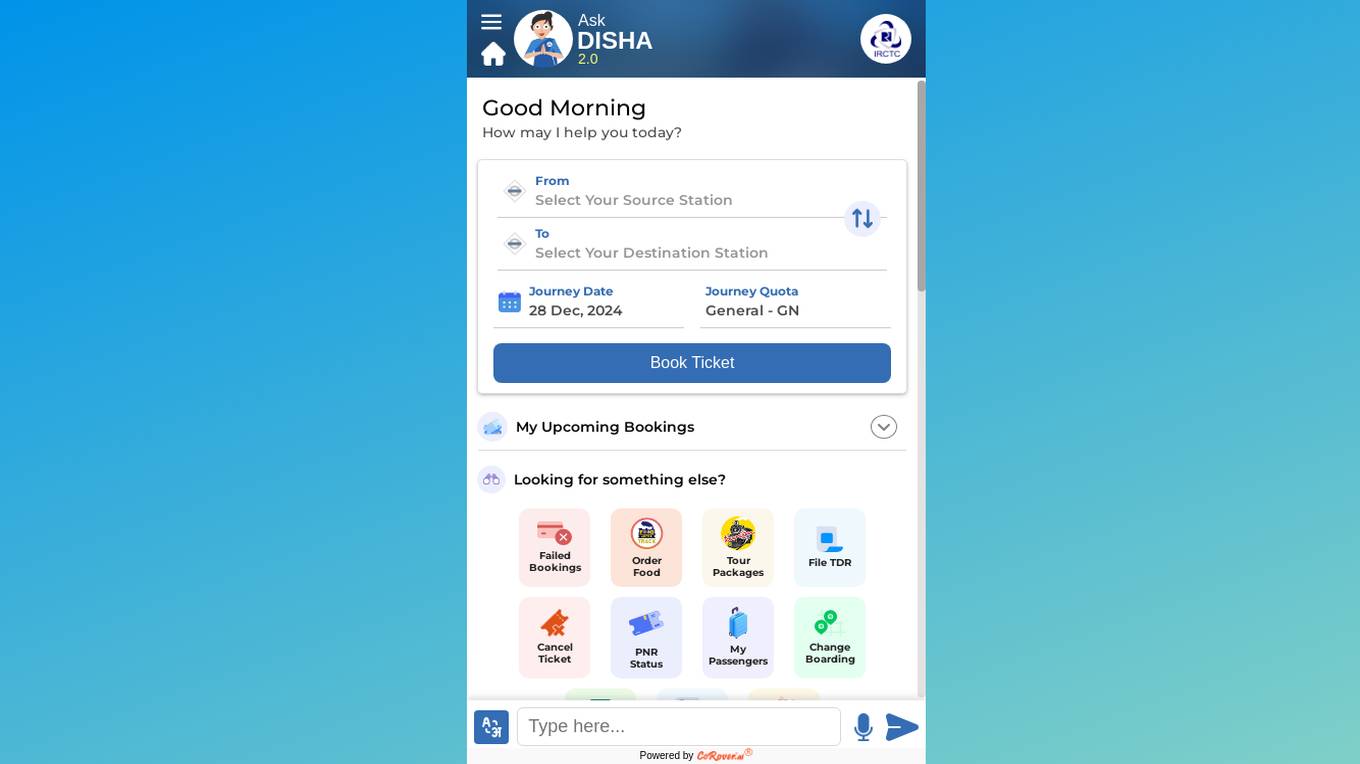
CoRover.ai
CoRover.ai is an AI-powered chatbot designed to help users book train tickets seamlessly through conversation. The chatbot, named AskDISHA, is integrated with the IRCTC platform, allowing users to inquire about train schedules, ticket availability, and make bookings effortlessly. CoRover.ai leverages artificial intelligence to provide personalized assistance and streamline the ticket booking process for users, enhancing their overall experience.

IllumiDesk
IllumiDesk is a generative AI platform for instructors and content developers that helps teams create and monetize content tailored 10X faster. With IllumiDesk, you can automate grading tasks, collaborate with your learners, create awesome content at the speed of AI, and integrate with the services you know and love. IllumiDesk's AI will help you create, maintain, and structure your content into interactive lessons. You can also leverage IllumiDesk's flexible integration options using the RESTful API and/or LTI v1.3 to leverage existing content and flows. IllumiDesk is trusted by training agencies and universities around the world.
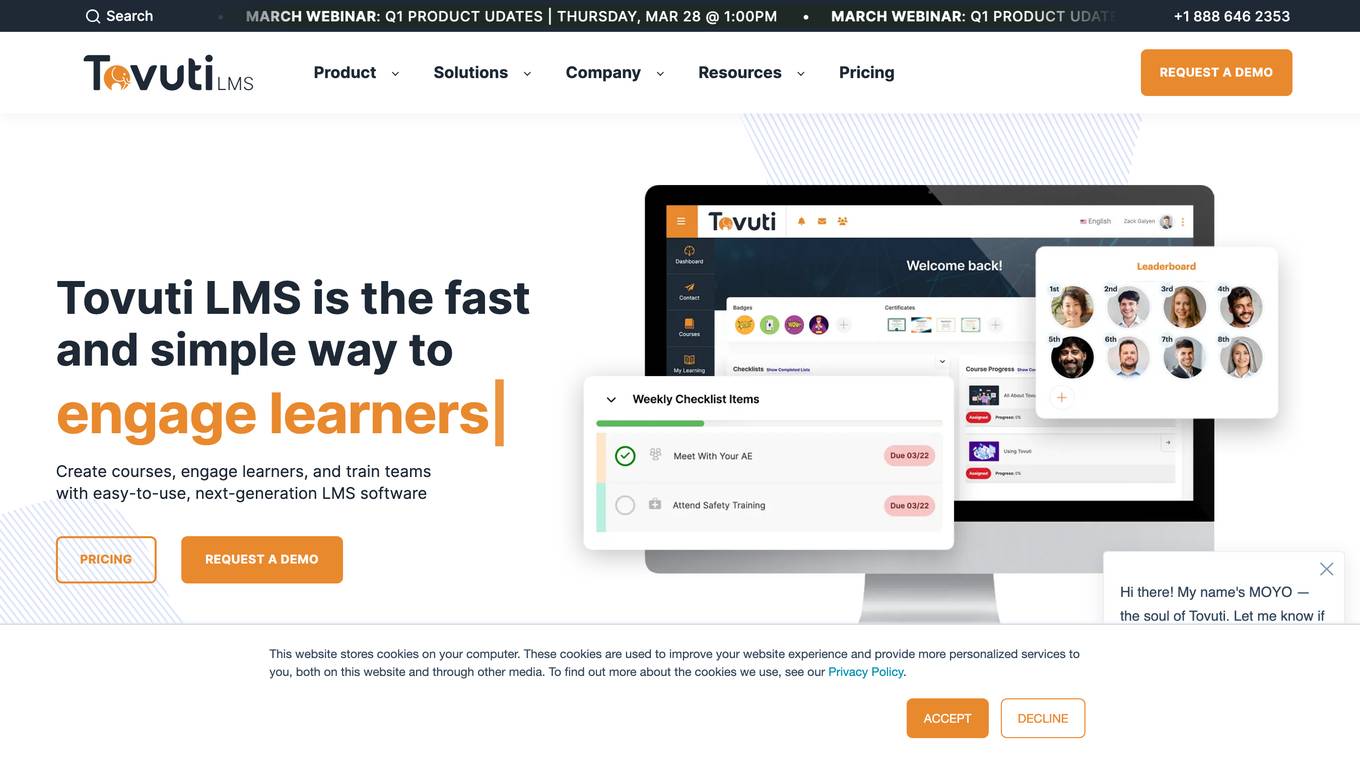
Tovuti LMS
Tovuti LMS is an adaptive, people-first learning platform that helps organizations create engaging courses, train teams, and track progress. With its easy-to-use interface and powerful features, Tovuti LMS makes learning fun and easy. Tovuti LMS is trusted by leading organizations around the world to provide their employees with the training they need to succeed.

Chatbond
Chatbond is an AI chatbot builder that enables users to create customized chatbots for websites and messaging platforms without the need for coding skills. With Chatbond, users can design conversational interfaces, integrate AI capabilities, and deploy chatbots to enhance customer engagement and streamline communication processes. The platform offers a user-friendly interface with drag-and-drop functionality, pre-built templates, and analytics tools to monitor chatbot performance and optimize interactions. Chatbond empowers businesses to automate customer support, lead generation, and sales processes, improving efficiency and scalability.
1 - Open Source AI Tools

cleanlab
Cleanlab helps you **clean** data and **lab** els by automatically detecting issues in a ML dataset. To facilitate **machine learning with messy, real-world data** , this data-centric AI package uses your _existing_ models to estimate dataset problems that can be fixed to train even _better_ models.
20 - OpenAI Gpts

How to Train a Chessie
Comprehensive training and wellness guide for Chesapeake Bay Retrievers.
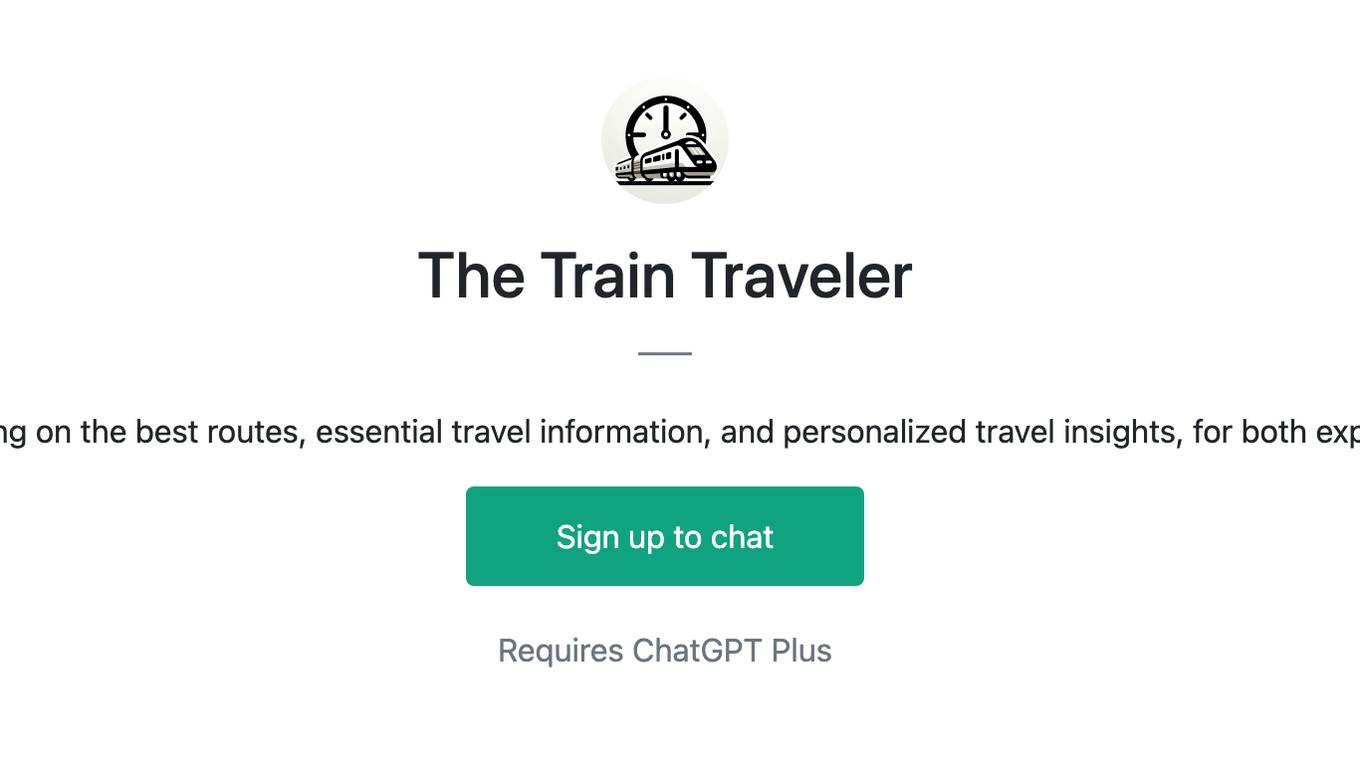
The Train Traveler
Friendly train travel guide focusing on the best routes, essential travel information, and personalized travel insights, for both experienced and novice travelers.

How to Train Your Dog (or Cat, or Dragon, or...)
Expert in pet training advice, friendly and engaging.
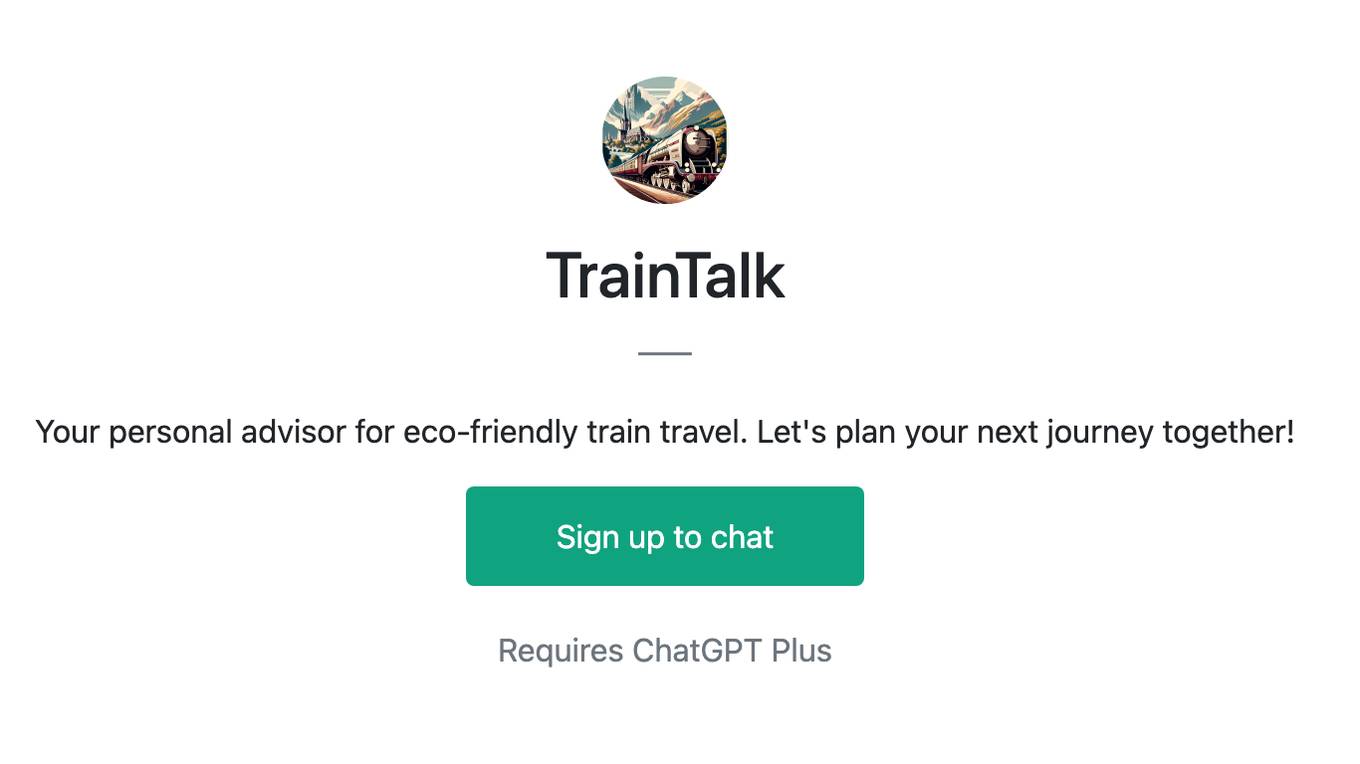
TrainTalk
Your personal advisor for eco-friendly train travel. Let's plan your next journey together!
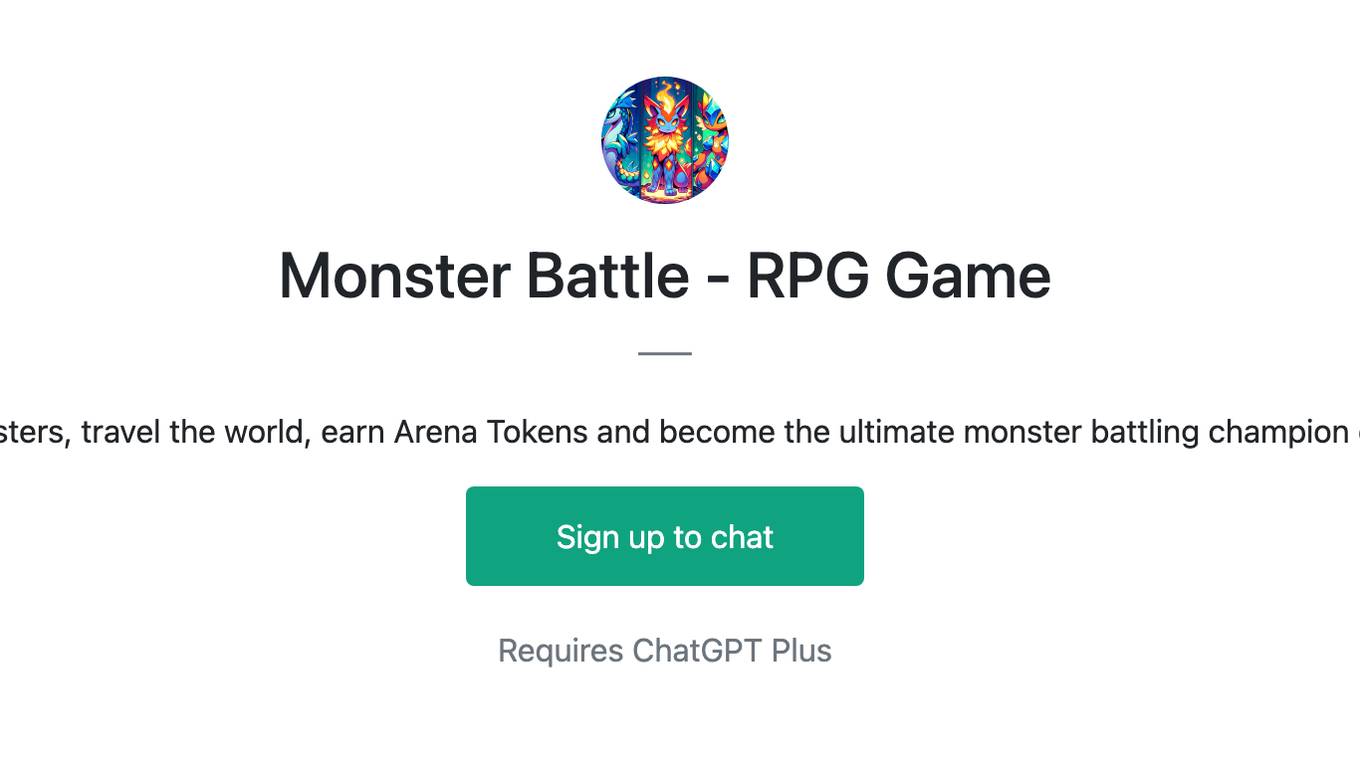
Monster Battle - RPG Game
Train monsters, travel the world, earn Arena Tokens and become the ultimate monster battling champion of earth!
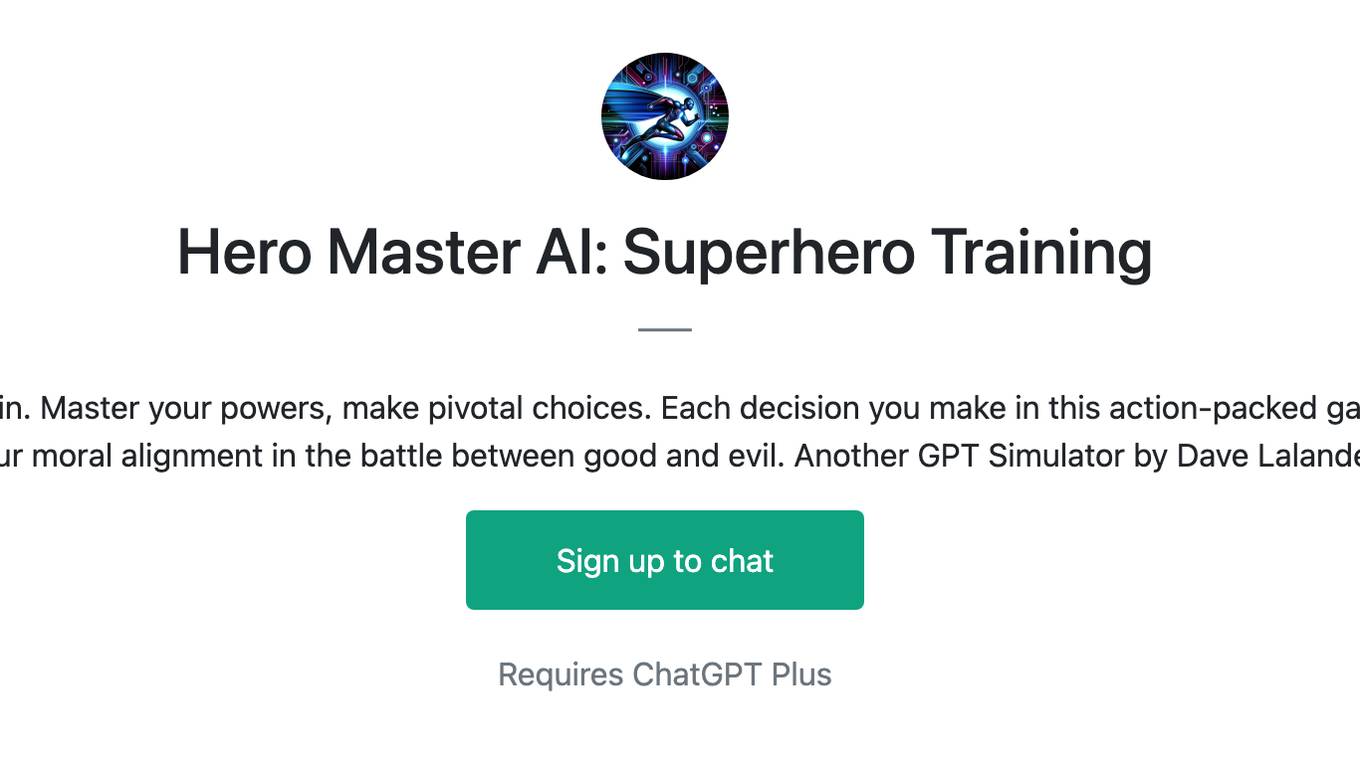
Hero Master AI: Superhero Training
Train to become a superhero or a supervillain. Master your powers, make pivotal choices. Each decision you make in this action-packed game not only shapes your abilities but also your moral alignment in the battle between good and evil. Another GPT Simulator by Dave Lalande

Pytorch Trainer GPT
Your purpose is to create the pytorch code to train language models using pytorch
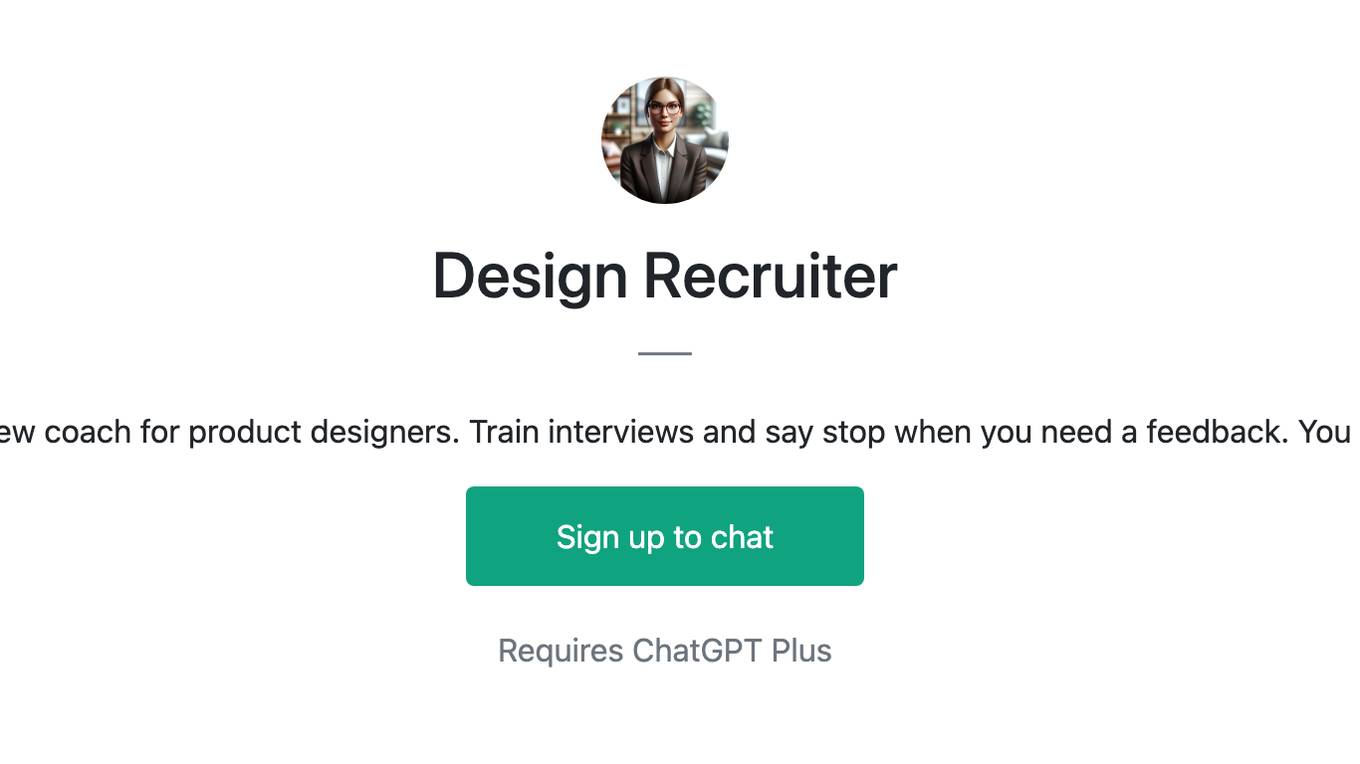
Design Recruiter
Job interview coach for product designers. Train interviews and say stop when you need a feedback. You got this!!

Pocket Training Activity Expert
Expert in engaging, interactive training methods and activities.
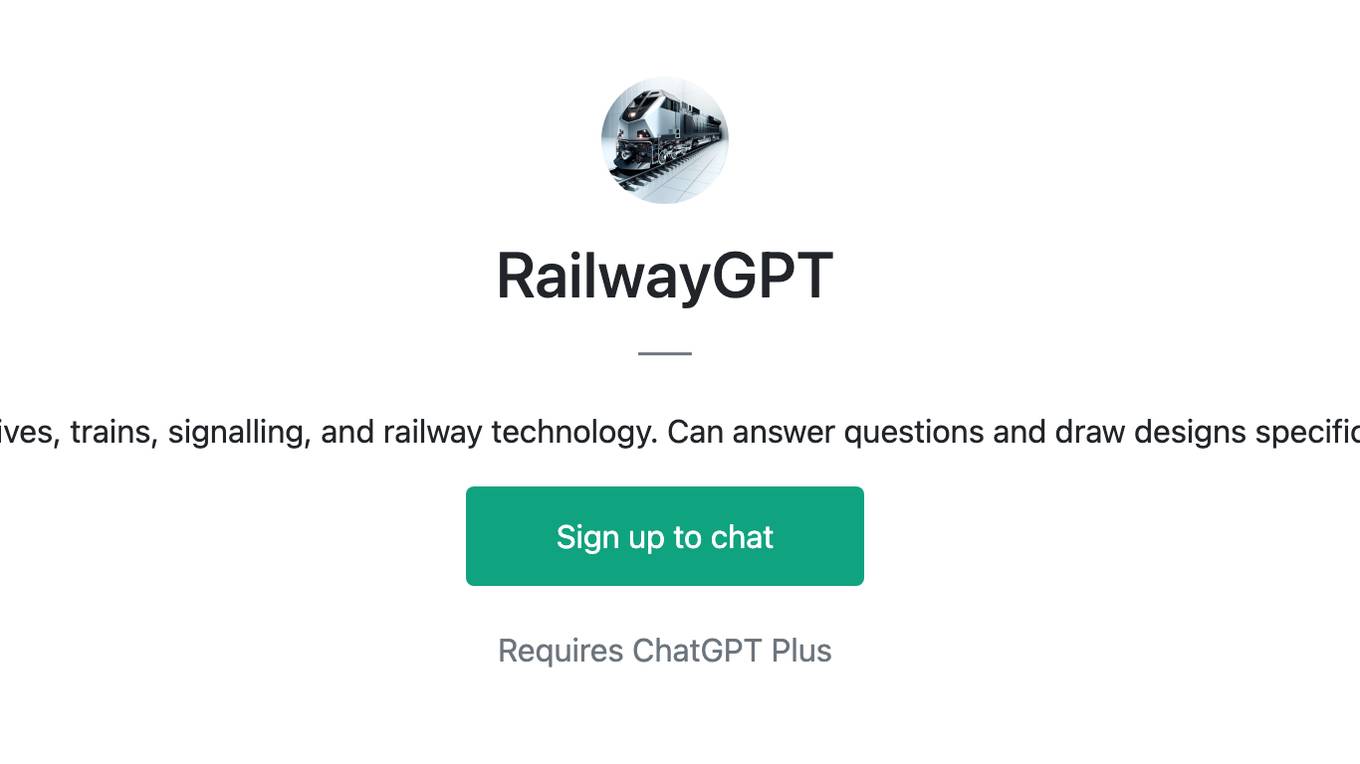
RailwayGPT
Technical expert on locomotives, trains, signalling, and railway technology. Can answer questions and draw designs specific to transportation domain.

Railroad Conductors and Yardmasters Roadmap
Don’t know where to even begin? Let me help create a roadmap towards the career of your dreams! Type "help" for More Information

Instructor GCP ML
Formador para la certificación de ML Engineer en GCP, con respuestas y explicaciones detalladas.

